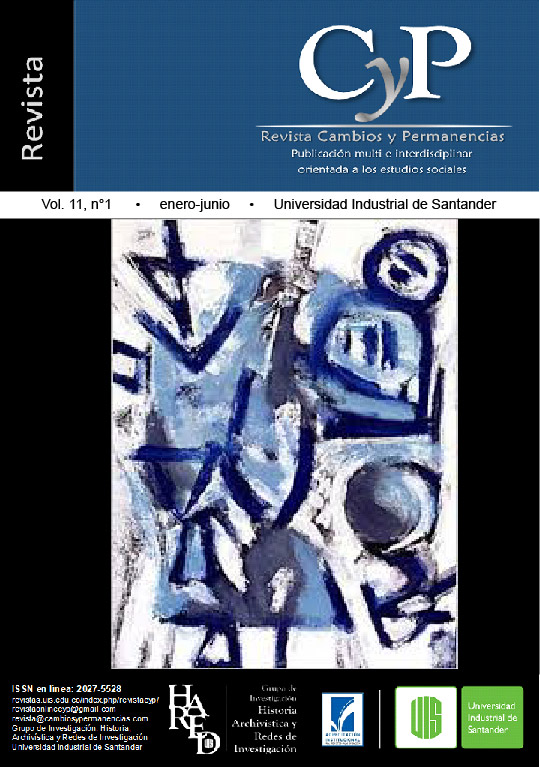The cooking burner stove at the scholl: emerging narratives with secondary school students
Published 2020-06-30
Keywords
- cooking burning stove,
- adultcentrism,
- subjectivity,
- narrative,
- listening
How to Cite
Abstract
Faced with the need for a communication policy, which would energize the findings derived from the research carried out with the Nasa people. I wrote The cooking burner stove at the scholl, last chapter of my master's thesis in Education: Human Development, called Cultural Traits of Nasa and its contextual contributions to an Intercultural Education. In that chapter I set out to take, what I learned with the Nasa, to the classroom, where the figure of the cooking burner stove was powerful for sharing knowledge from the flow of the word. To think of this possibility invited intersubjective relationships, based on listening, without the verticality existing in school life. Converse with eleventh graders of the I.E. Escuela Normal Superior Farallones Cali it meant sharing thoughts, sensitivities, bets and imaginaries about the pre-text of the social sciences as an act of reciprocal learning.
This article wants to tell how, from a utopian and even dystopian narration, but above all imagined and hopeful, assumed the epistemic challenge needed to respond to the need to break adultcentrism canons operated on young people, which has not allowed them to think for themselves and narrate from their own experience as a source of knowledge.
Downloads
References
Capra, F. (2007). El Tao de la Física. Madrid, España: Editorial Sirio.
Escobar, A. (2014). Sentipensar con la tierra Nuevas lecturas sobre desarrollo, territorio y diferencia. Medellín, Colombia: Ediciones UNAULA.
Galeano, E. (2005). El Libro de los Abrazos. Coyoacán, México: Editorial Siglo XXI.
Hinojosa, R. (2012) La Historia Oral y sus aportaciones a la investigación Educativa. Revista de Investigación Educativa de la REDIECH. Recuperado de: https://www.redalyc.org/html/5216/521652343007/
Lenkersdorf, C. (2008). Aprender a Escuchar. Enseñanzas Maya-Tojolabales. México, D.F., México: Plaza y Valdez Editores.
Meyer, E., y Olivera, A. (1971). La Historia Oral. Origen, metodología, desarrollo y perspectivas. Revista Historia Mexicana. 1(2), 372 - 387. Recuperado de: https://historiamexicana.colmex.mx/index.php/RHM/article/view/2546/2058
Moraes, M. (2011). Sentipensar bajo la mirada autopoiética o cómo reencantar creativamente la educación. Revista Creatividad y Sociedad, (2), 41 – 56. Recuperado de: http://www.ub.edu/sentipensar/pdf/sentipensartweb.pdf
Morin, E., y Kern, A. B. (1993). Tierra – Patria. Barcelona, España: Editorial Kairós.
Sabato, E. (1998). Antes del Fin. Buenos Aires, Argentina: Editora Seix Barral.
Saramago, J. (2006). Las Intermitencias de la Muerte. Madrid, España: Ediciones Punto de Lectura.
Vásquez, J. D. (2013) Adultocentrismo y juventud: Aproximacones foucaulteanas. Sophia, Colección de Filosofia de la Educación, (15), 217 – 234. Recuperado de: https://www.redalyc.org/html/4418/441846100009/
Viluche, J., Chocué, A., Et al. (S. F.). YACKAWE’SX DXI’J’S THEGCHAN U’JWEKA. Caminamos sobre las huellas de los mayores para reconstruir pensamiento indígena. Cauca, Colombia: Espacio de Formación de Derecho Propio Cristobal Secué.
Vitonás, C., y Yule, M. (2010). PEES KUPX FXI’ZENXI. La metamorfosis de la vida. Toribio, Colombia: Cabildo Etnoeducativo Proyecto Nasa.

